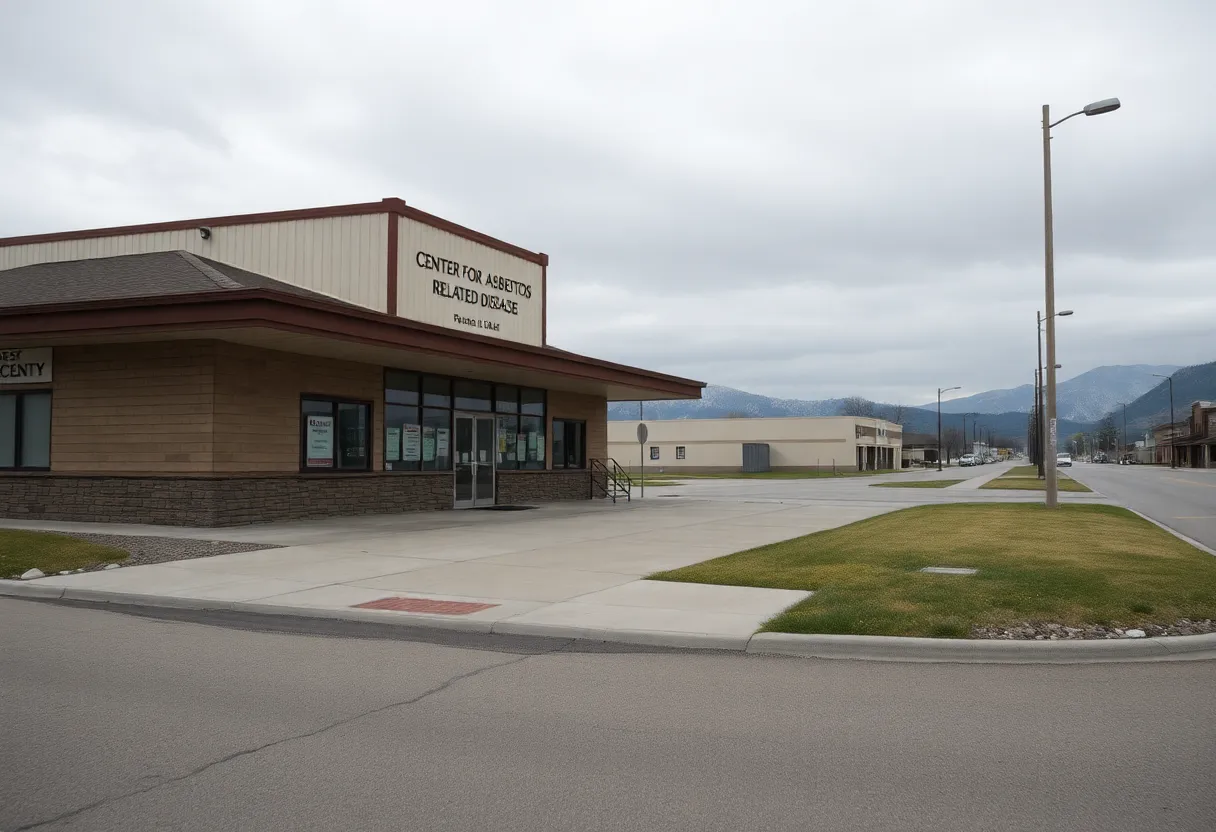News Summary
The abrupt shutdown of the Center for Asbestos Related Disease (CARD) clinic has left Libby residents facing dire health implications and uncertainty regarding asbestos-related evaluations.
Closure of Asbestos Clinic Leaves Libby Residents in Health Limbo
In a shocking turn of events, the Center for Asbestos Related Disease (CARD) clinic in Libby, Montana, has been shut down following a court order that allows BNSF Railway to seize its assets to satisfy a staggering $3.1 million judgment. This closure is a significant blow to the approximately 3,000 residents of the small town, nestled just 50 miles from the U.S.-Canada border and infamous for its long-standing battle with asbestos exposure.
A Troubled Past of Asbestos Exposure
The town of Libby has been grappling with the devastating consequences of asbestos contamination for decades. In the early 1900s, gold miners discovered vermiculite, a mineral containing asbestos, which led to the establishment of the Zonolite Company in the late 1920s. The mine became a major site for asbestos production, leading to significant public health issues in the surrounding community. After the mine’s closure in 1990, the Environmental Protection Agency placed the site on its Superfund program’s National Priorities List in 2002, but cleanup efforts continue to this day.
Significance of CARD Clinic
Since its establishment in 2000, the CARD clinic has played an instrumental role in providing vital health screenings, monitoring, and treatment for those affected by asbestos-related diseases such as asbestosis and mesothelioma. Over its two decades of service, the clinic has aided thousands of victims, making its abrupt closure a concerning development for public health in the region. Following the fraud judgment against CARD, which the clinic has contested, its operational viability has been put at a severe risk.
Legal Troubles and Challenges Facing CARD
BNSF Railway has found itself at the center of multiple lawsuits relating to asbestos exposures and their aftermath in Libby. The railway was accused of contributing to local pollution by transporting contaminated materials from the nearby mine site. In a recent ruling, BNSF claimed that CARD fraudulently designated over 2,000 patients as eligible for government benefits, despite knowing many were ineligible. The fallout from this decision concluded with the court ruling that 337 diagnoses made by CARD were false, leading to significant financial ramifications for the clinic.
Despite these challenges, CARD has continued operations even after declaring bankruptcy and reaching a settlement related to its debts that included the government and BNSF. The clinic has asserted that the actions of the railway violated this settlement, leading to further legal complications.
Impact of the Closure on Local Health
The shutdown of CARD is expected to have dire implications for those in Libby seeking evaluations for asbestos-related health issues. With fewer opportunities for screenings, many residents may go undiagnosed or receive delayed treatment for serious conditions associated with past exposures to asbestos. Local authorities, including the sheriff, have voiced significant concerns over potential repercussions on community health.
The Future of CARD and Community Response
Approximately 19 employees of the clinic now face uncertainty as the local health advocacy organization strives for a path to reopen. The Executive Director of CARD has reiterated a firm commitment to its patients and the community, emphasizing a desire to fight the closure and restore vital services as soon as feasible.
However, the clinic is still under fire from a legal standpoint, facing a pending local lawsuit accusing it of medical malpractice, wrongful death, and questionable opioid prescriptions outside required diagnostics. All the while, the community remains anxious about the health implications of losing such an essential resource in their battle against the lingering horrors of asbestos contamination.
A Continuing Battle Against Asbestos
The legal and health saga in Libby remains an ongoing story as residents wrestle with the ramifications of historical asbestos exposure. The fate of the CARD clinic hangs in the balance, with the potential for reopening uncertain amidst a backdrop of legal disputes and community health concerns. The actual number of deaths attributed to asbestos-related diseases in the region remains unknown, as the town continues to confront its troubled legacy.
Deeper Dive: News & Info About This Topic
HERE Resources
The Closure of the CARD Clinic: A Blow to Libby’s Asbestos Victims
Closure of the Center for Asbestos Related Disease Shakes Libby, Montana Community
The Closure of Libby’s Asbestos Screening Clinic: A Public Health Crisis
Asbestos Screening Clinic Closure Leaves Libby Residents in Jeopardy
Asbestos Clinic Closure Sends Shockwaves Through Libby Community
Asbestos Trade in India: A Carcinogenic Legacy and Ongoing Controversy
Family Seeks Witnesses After Kent Woman Dies from Mesothelioma
AEW’s EJ Nduka Parts Ways After Contract Expires
New Hope in the Fight Against Malignant Pleural Effusion: Exciting Pipeline Developments
Jury Awards $3 Million in Shocking Mesothelioma Case
Additional Resources
- Daily Inter Lake: Libby’s Asbestos Clinic Shuttered
- Wikipedia: Asbestos
- The Western News: Libby’s CARD Clinic Closed
- Google Search: Asbestos Exposure Libby Montana
- Associated Press: Libby Montana Asbestos Clinic Shuttered
- Google Scholar: Asbestos Related Diseases
- NBC Montana: Asbestos Clinic Forced to Close
- Encyclopedia Britannica: Asbestosis



















